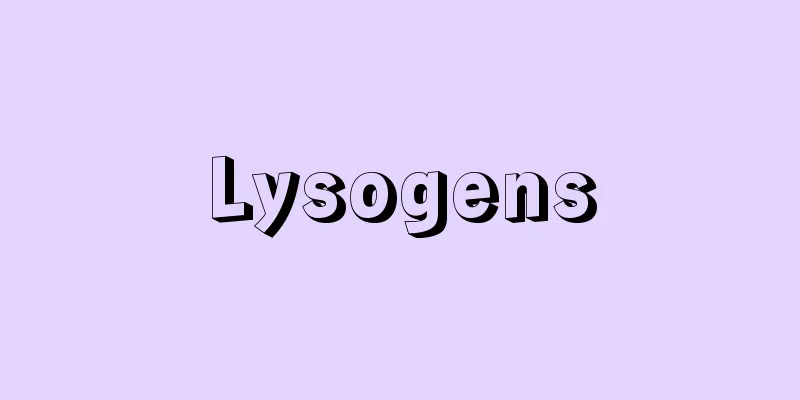Lysogens

|
A bacterium infected with a non-replicative bacteriophage (prophage). This infection is called lysogenization. The DNA of the prophage is integrated into the bacterial chromosome and replicates as the bacterium divides. When the prophage repressor is inactivated by artificial manipulation such as UV irradiation or chemicals, phage proliferation is induced. The phenomenon of transduction is observed using lysogens. Source : Heibonsha Encyclopedia About MyPedia Information |
|
非増殖性のバクテリオファージ(プロファージ)の感染を受けた細菌。感染を受けることを溶原化という。プロファージのDNAは細菌の染色体に組み込まれていて,細菌の分裂とともに複製される。紫外線照射や化学物質などの人為的操作でプロファージのリプレッサーが非活性化されるとファージの増殖が誘発される。形質導入の現象は,溶原菌を用いて観察される。
出典 株式会社平凡社百科事典マイペディアについて 情報 |
Recommend
Gojo clan
A powerful clan in Kyushu that flourished after th...
Oba Mikuriya
The Mikuriya of Ise Shrine was established in Oba...
bunker
…While a stacker piles up the ore that arrives at...
Ikata Nuclear Power Plant - Ikata Nuclear Power Plant
...The Science Council of Japan, the Japanese Sci...
Columba jouyi (English spelling)
… [Kiyomitsu Sasaki]. … *Some of the terminology ...
Kasada Manor - Kasada no Sho
...A manor in Ito District, Kii Province (present...
Extension field - kakudaitai (English spelling)
A mathematical term. K ' is said to be an exte...
Calotype
Invented by Talbot in 1841, this was the first pho...
Tinamidae
… any bird of the order Tinamidae, family Tinamid...
Lycoris squamigera (English name) Lycorissquamigera
…[Tetsuichi Yahara]. … *Some of the terminology t...
Katabatic wind - Katabatic wind
Katabatic winds are also called descent winds. The...
Fusarium oxysporum (English name) Fusariumoxysporum
...The phenomenon in which the whole plant wilts,...
libretto
The brand name of a Windows mini-notebook computer...
Hasama [town] - Hasama
A former town in Oita County, central Oita Prefect...
Idiacanthidae
...The eyestalk regresses as the fish grows, beco...







![Seki [city] - Seki](/upload/images/67cc022a50d34.webp)

